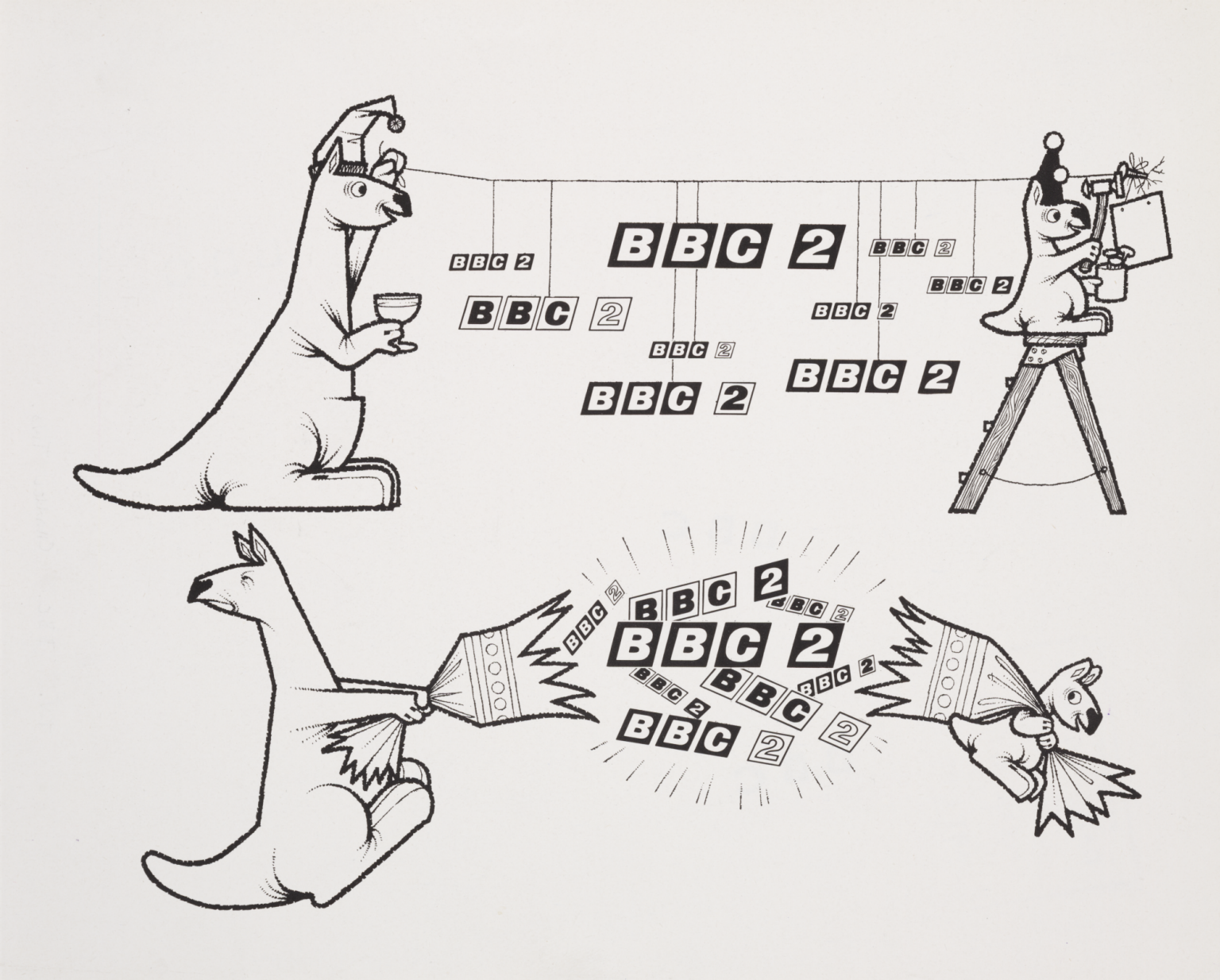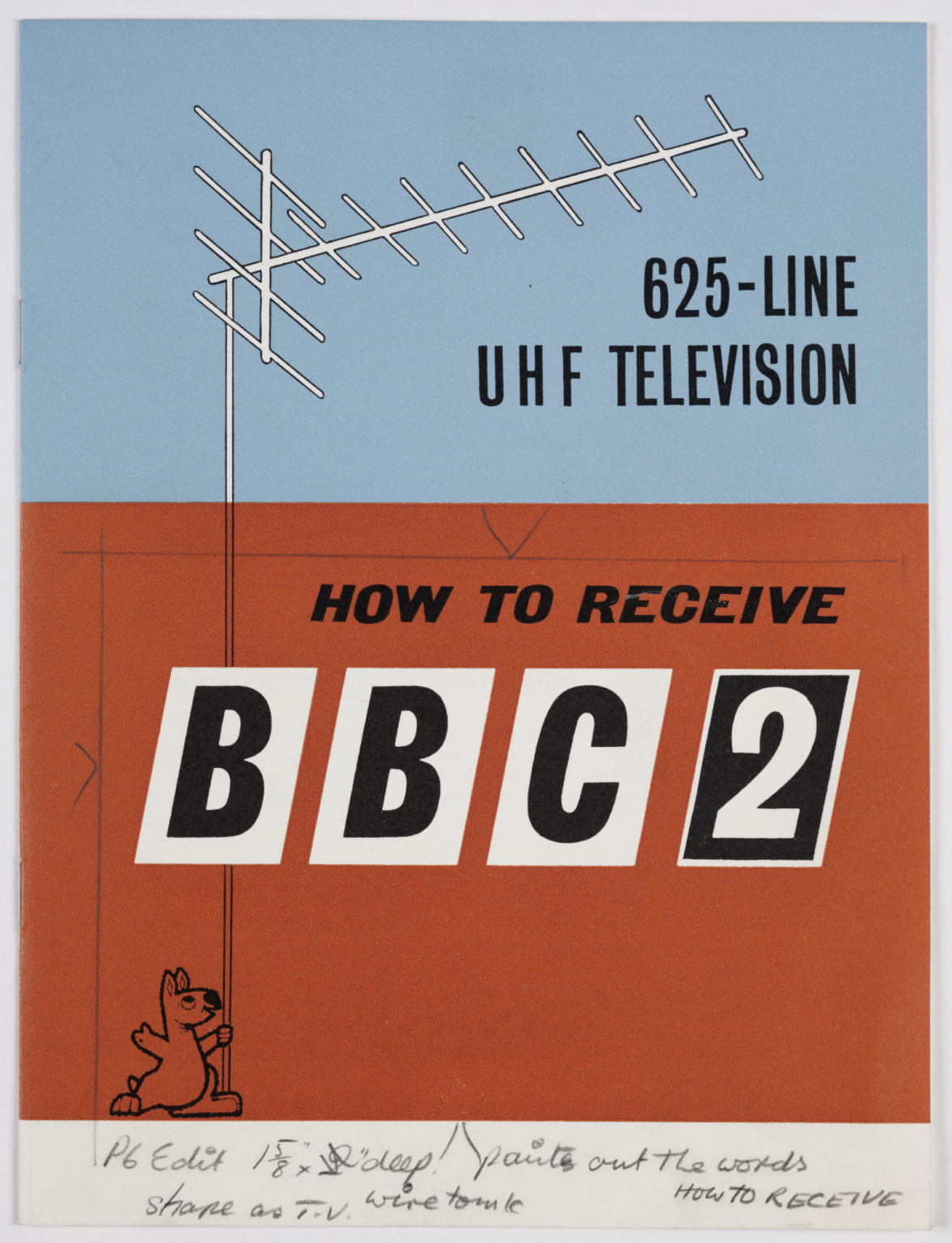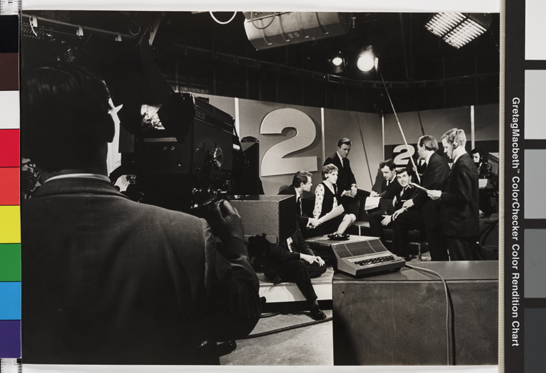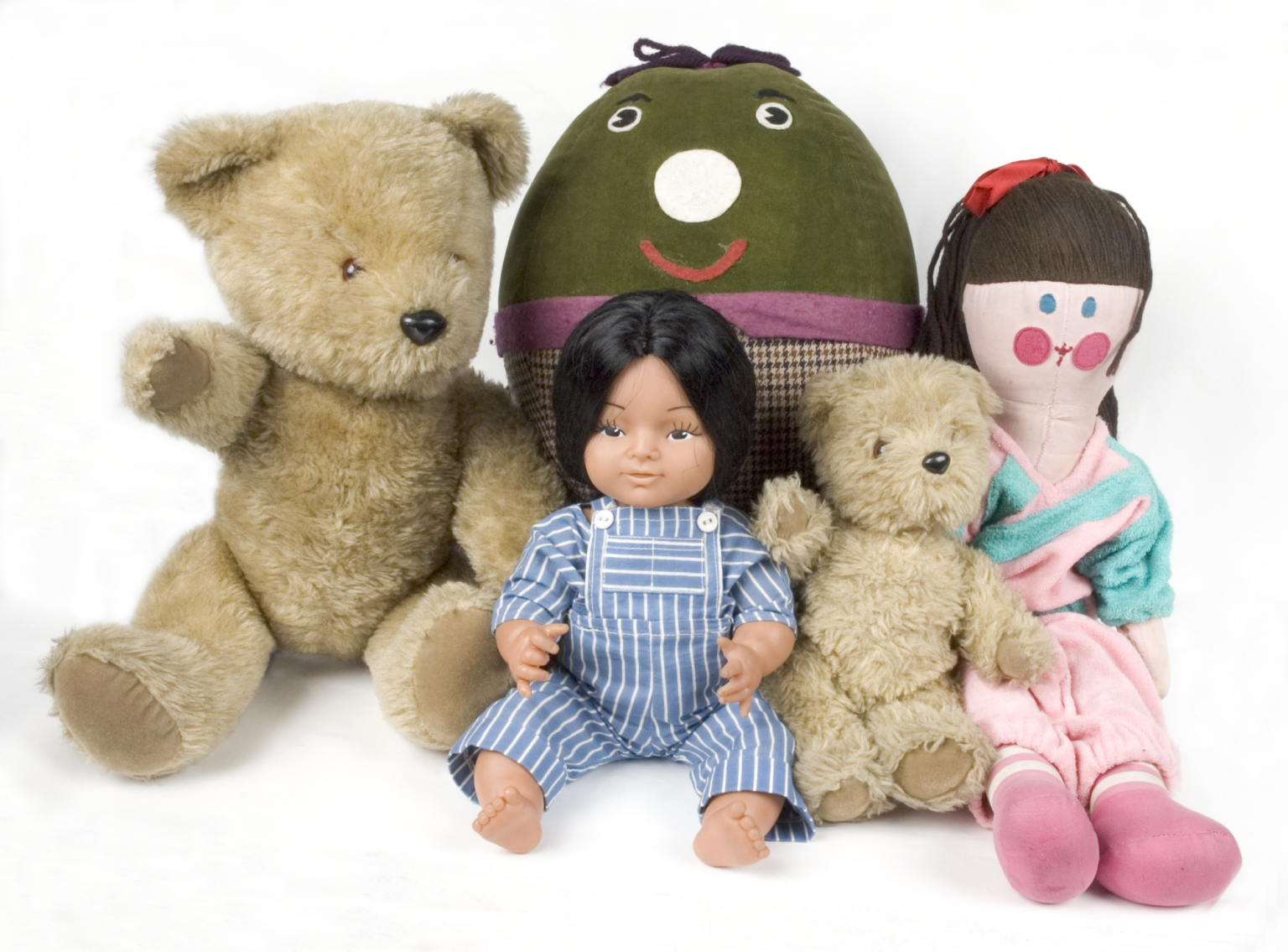BBC2 was scheduled to open on 20 April 1964, but a massive power failure in West London meant that the opening night was essentially cancelled. BBC2 opened the following morning, 21 April, with an episode of Play School. This post explores objects in our collection which are relevant to these two days.
Collection objects from the launch of BBC2
Following the Pilkington report, which expressed disappointment with the commercial programming on ITV, BBC2—the UK’s third television channel—was to be relatively highbrow. In his Daily Herald column, Dennis Potter declared: ‘BBC2 offers us, for the first time, a genuinely planned alternative instead of a haphazard chase up the ratings table’. BBC2 was also to be the first channel in the UK to broadcast using the new higher-resolution television standard of 625 lines, which was eventually adopted by BBC1 and ITV.



Because BBC Television Centre was shut down by a power failure, the only BBC television site still with electricity was the news studio, which was located at Alexandra Palace.
2” video footage found
Below you can watch the video recording of the actual opening of BBC2 (courtesy of the Alexandra Palace Television Society). Due to technical difficulties, the first 2½ minutes were broadcast without sound, with the newsreader, Gerald Priestland, unaware that the audience at home couldn’t hear him. This recording was rediscovered at BBC Kingswood Warren in 2003. It is the earliest surviving off-air recording of a 625 line broadcast in the UK.
Play School unexpectedly becomes the first programme on BBC2
Due to the power failure, the new children’s programme Play School became the first programme screened on BBC2.
Play School was broadcast every weekday morning on the BBC from 1964 to 1988. Its format, aimed at pre-school children, remained almost unchanged: songs, dances, dressing up, pets, films of the outside world ‘seen’ through one of three windows.

Human presenters came and went, but for many people the toys were the real stars of BBC2’s Play School. An early version of Humpty appeared in the first edition, with further toys being added later. The Play School toys were Humpty (a plush version of the nursery rhyme character Humpty Dumpty), teddy bears Big Ted and Little Ted, ragdoll Jemima, and plastic doll Hamble.
The toys featured prominently throughout the series and were much loved by viewers. The programme’s presenters sometimes didn’t feel quite as affectionate towards them. They often received rough treatment when things went wrong in the studio. Sadly, Hamble, a rare 1960s dark-haired Tiny Tears doll, suffered the worst, and after numerous costly repairs, she was replaced by Poppy in the mid 1980s.
Play School was dropped by the BBC in 1988, and replaced with the series Playbus. This was later renamed Playdays. These replacements put more emphasis on children interacting with the adults on screen than Play School had.
Many later pre-school shows owe a great deal to Play School, notably CBeebies’ Tikkabilla which uses the arched, square and round windows to introduce films just as Play School did 40 years before it.
If you visit the museum’s television gallery, you can see the Play School toys in person—they are on permanent display here in Bradford.
When did BBC2 have a week of programmes on Science and that included most if not all evenings that week, a loud and even seriously raucous discussion among the scientists of that evening on how virulently they disagreed with each other? Wither 1960s or 1970’s?